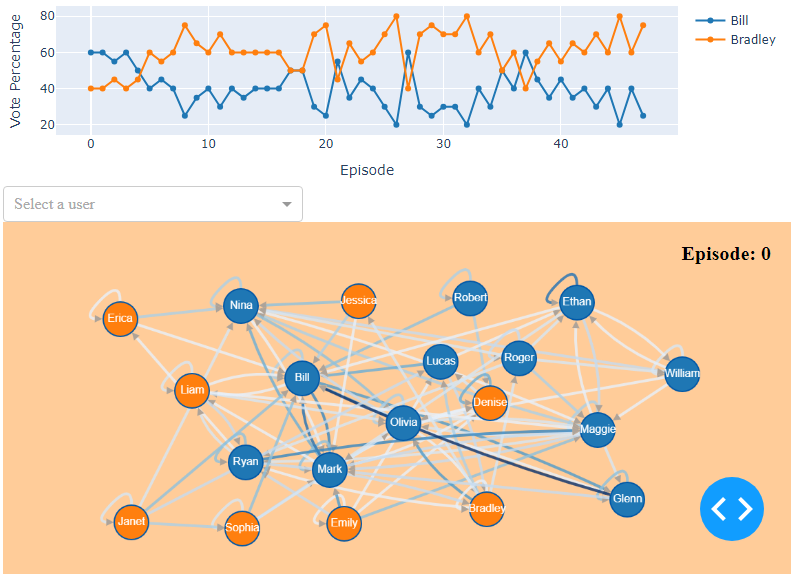
|
|
Background
Two important and under appreciated aspects to decision-making are:
- Uncertainty in our beliefs. It weaves together the main components of decision-making theory:
- Uncertainty about how to efficiently represent the world
- How do we abstract the world in a way that minimally distorts our ability to choose actions to achieve a goal?
- Uncertainty about the value of actions we take
- How does the uncertainty in our beliefs about the world transform into uncertainty about how valuable are the actions we can take in it?
- Uncertainty about what goals we should pursue
- How do we form and select goals to pursue (ultimately defining what value means for us)?
- Uncertainty about how to efficiently represent the world
- Social factors, personal values, and sense of identity. They can play a prominent role in the decision-making process within an individual, but also collectively within a society. Many of the pressing societal problems of our time, from polarization to climate change inaction, rest on how we form beliefs while consuming information and dialoguing/sensemaking in social venues, increasingly curated by algorithms, on a range of scales from peer-to-peer extending to large, online communities. The form of the information exchanged in these fundamentally social interactions and the form of the mediums over which this exchange occurs can play a role in the collective decisions we make as a society by biasing how individuals decide what to believe.
- social/cognitive psychology & behavioural sciences,
- public policy & political science, and
- computational social science
Research Topics
A local (i.e. individual) and global (i.e. societal) approach to understanding social systems highlights two kinds of phenomena:
- inference and decision-making in the behaviour of individuals and small groups, and
- complex system dynamics of large numbers of interacting learning agents.
Data-Driven: Large-scale data science and simulations of society
Motivation: better accounting for the effects of the social milieu in which individuals come to believe who they are and what is important to them, my motivation is that we can better align the algorithms that structure our collective discourse, as well as develop prosocial, assistive technologies in that space. I organized a RLDM workshop on social alignment in humans and machines on this topic. In this area, I collaborate with psychologists and social (e.g. political) scientists in order to tease apart the interplay of belief, identity, and decision-making bias.
Selected Projects
- Using topic correlations inferred from open-ended responses to large scale surveys about climate change beliefs (here about a tax on carbon) to operationalize ideology in pursuit of better climate and policy communication
(Puelma Touzel et al. Environmental Data Science 2024). - Collaborating with the complex data lab, I made contributions to a large-scale analysis of social media data (submitted Yang et al. 2024).
- The advent of large langage models has opened up a new and promising approach to studying complex social decision-making phenomena. Using Concordia (Deepmind's LLM-based simulation library for modelling social systems), I lead a FLI-funded project on using simulations to study large-scale manipulation (Puelma Touzel et al. 2024, Puelma Touzel et al. IJCAI 2025).



Theory-Driven: Efficient learning algorithms for environments with realistic properties
My theory work is motivated to advance how we design learning algorithms for use in more realistic settings. While funded under the Canadian Excellence Research Chair in autonomous AI held by Irina Rish (UdeM), I and co-authors mathematically analyzed the subtle dynamics that emerge in multi-agent, continual reinforcement learning settings. Our work frames the challenges in the design of robust algorithms in this setting going forward.
Example Projects
- Understanding how, as decision-making problems scale, the time to learn about them grows according to the ways in which the agent and the environment interact.
Continual Learning In Environments With Polynomial Mixing Times
Riemer M*, Chandra Raparthy S*, Cases I, Subbaraj G, Puelma Touzel M, Rish I.
NeurIPS (2022). - The world is full of other behaving and learning agents. How can the complexity of what everyone else is doing be abstracted efficiently?
Summarizing Societies: Agent Abstraction in Multi-Agent Reinforcement Learning
Puelma Touzel M*, Me'marian A*, Bhati R, Riemer M, Rish I.
From Cells to Societies: Learning Across Scales Workshop, ICLR (2022).
Scalable Approaches to a theory of many minds
Puelma Touzel M*, Me'marian A*, Riemer M, Mircea A, Williams A, Ahlstrand E, Lehnert L, Bhati R, Dumas G, Rish I.
Agentic Markets, ICML (2024).
If you have read it this far, you are interested! Let me pitch: While we always need to be discerning when evaluating any given idea to ensure it isn't greenwashed by tech solutionism, AI could play role in useful transition tech—applications like optimizing measurement sensing, energy efficiency, and BioTech. Given my training and research experience, I'm specifically interested in applications specializing on the less prevalent, but I think equally important applications of AI in social tech that helps us overcome social dilemmas and coordinate our action. ClimateMind is a great example. If these interest you, get in touch!
